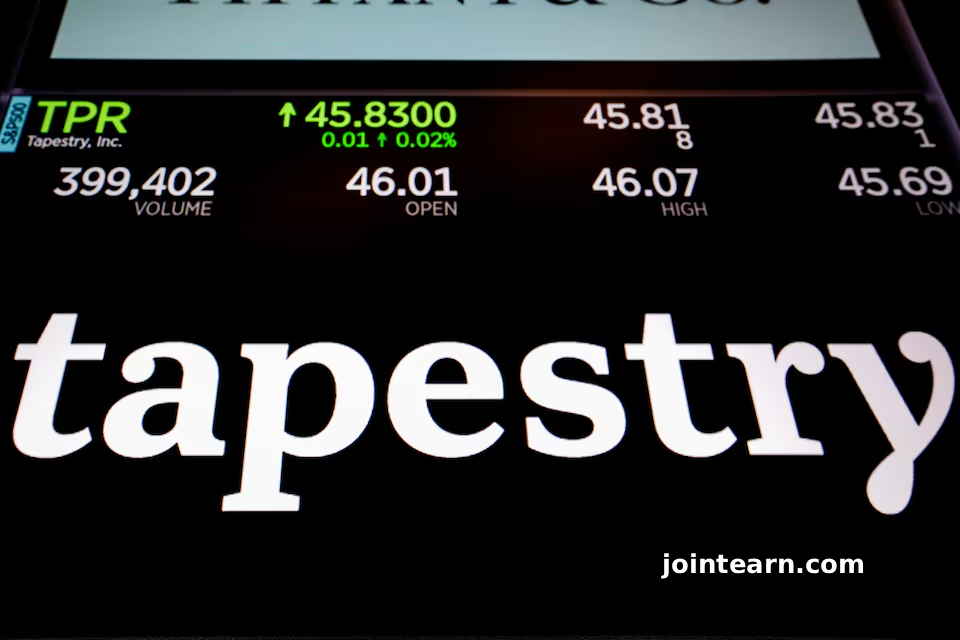
New York: Luxury fashion conglomerate Tapestry Inc. (TPR.N) lifted its annual profit and sales targets on Thursday, fueled by strong demand for Coach’s Tabby handbags, strategic product adjustments at Kate Spade, and effective management of tariff pressures.
Despite the upbeat forecast, Tapestry shares fell roughly 7% in premarket trading, following a nearly 70% surge in share price year-to-date.
Robust First-Quarter Performance
Tapestry reported first-quarter net sales of $1.70 billion, surpassing analyst expectations of $1.64 billion. Adjusted earnings per share (EPS) of $1.38 also exceeded estimates of $1.26.
The company achieved a 200-basis-point increase in adjusted operating margins in the quarter while maintaining its prior expectation of approximately 230 basis points impact from tariffs on annual margins.
CEO Joanne Crevoiserat credited strong demand for higher-margin Coach Tabby bags, priced up to $750, for helping Tapestry navigate tariffs without raising prices.
Strong Sales in Key Markets
While North America continues to represent the majority of Tapestry’s revenue, the company reported significant growth in other key regions:
- China: Sales rebounded by 19% in the quarter.
- Europe: Revenue surged 32%, driven by robust Coach performance.
These gains reflect Tapestry’s strategy to expand its global footprint while leveraging high-demand luxury products to offset tariff and economic pressures.
Product Strategy and Brand Focus
Coach, which accounts for roughly 85% of Tapestry’s revenue, saw 21% growth on a constant currency basis, following a 13% increase in the prior quarter.
At Kate Spade, where sales have declined over the past three years, Tapestry reduced its handbag offerings by about 30%, while focusing on fresh product lines such as crossbody bags priced above $300. Despite a 9% drop in Q1 net sales, performance improved sequentially.
“We’re being disciplined on discounting at Kate Spade to protect brand health and long-term demand,” Crevoiserat said.
Updated Financial Guidance
Following the strong quarter, Tapestry now projects adjusted EPS for fiscal 2026 in the range of $5.45 to $5.60, up from the previous target of $5.30 to $5.45.
Excluding the Stuart Weitzman brand, sold earlier this year, the company anticipates annual revenue growth of 7% to 8%, exceeding the prior mid-single-digit growth target.
Market Trends Driving Performance
Tapestry’s results highlight broader consumer trends in the affordable luxury sector, with Gen-Z shoppers selectively spending on high-demand items. While brands targeting lower-income segments face weaker demand due to economic uncertainty, Tapestry’s premium offerings have benefited from strong brand appeal and disciplined pricing strategies.


Leave a Reply